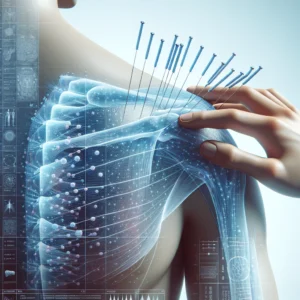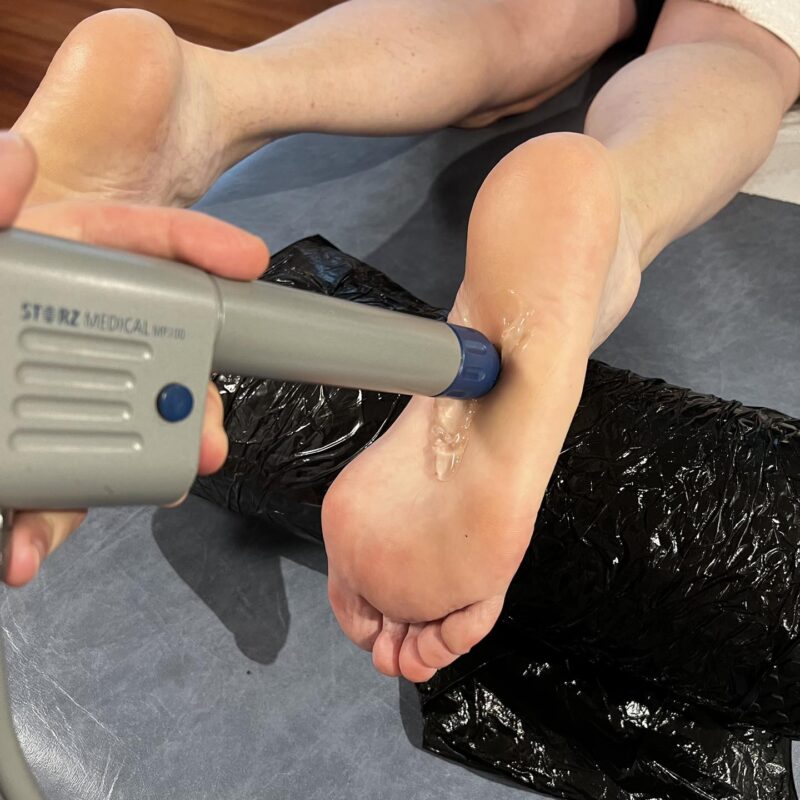Effective Acupuncture Techniques for Alleviating Shoulder Stiffness
Identifying Shoulder Stiffness: Causes, Symptoms, and Impact
Shoulder stiffness is not just a minor inconvenience; it’s a debilitating condition that can significantly hinder your daily activities and overall quality of life. This common issue often stems from many factors, including poor posture, repetitive motions, muscle imbalances, and past injuries. The discomfort may start as a subtle tightness, developing into severe pain and restricted movement if left unaddressed.
Prolonged periods of poor posture, especially primarily with desk jobs or frequent overhead activities, can strain the shoulder muscles and ligaments, ultimately leading to chronic stiffness. Additionally, athletes and individuals engaged in manual labor are especially vulnerable to overuse injuries, which can provoke inflammation and tightness in the shoulder region. Traumatic incidents, such as falls or accidents, can also trigger acute shoulder stiffness, often accompanied by symptoms like swelling and bruising.
The symptoms associated with shoulder stiffness can manifest in various ways, including radiating pain down the arm, difficulty lifting the arm, or a persistent sensation of tightness within the shoulder joint. You may also notice a significant reduction in your range of motion, making everyday activities like reaching, throwing, or sleeping uncomfortable. Early recognition of these symptoms is crucial for seeking effective treatments, such as acupuncture for shoulder stiffness, which can provide substantial relief and restore mobility.
 The Mechanisms of Acupuncture for Effective Shoulder Pain Relief
The Mechanisms of Acupuncture for Effective Shoulder Pain Relief
It’s important to understand how this ancient practice operates to appreciate its benefits for shoulder stiffness fully. Rooted in Traditional Chinese Medicine (TCM) principles, acupuncture emphasises the balance of vital energy, or “Qi,” flowing through designated pathways in the body known as meridians. When blockages or imbalances occur in this energy flow, they can lead to pain and stiffness.
Fine needles are strategically inserted in an acupuncture session at specific points along these meridians. This technique stimulates the nervous system, triggering the release of endorphins and other neurotransmitters that help alleviate pain and diminish inflammation. As the body begins its natural healing process, blood circulation improves, delivering vital nutrients and oxygen to the affected regions of the shoulder.
Numerous studies have highlighted that acupuncture can significantly lower pain levels and enhance the range of motion for individuals experiencing shoulder stiffness. By directly addressing the root causes of discomfort, acupuncture provides immediate relief and supports long-term recovery. This holistic method targets the symptoms and underlying issues, making it an invaluable therapeutic option for those facing challenges related to shoulder stiffness.
Essential Acupuncture Points for Targeting Shoulder Stiffness
Understanding specific acupuncture points can significantly enhance your treatment experience and outcomes when exploring treatment options for shoulder stiffness. Here are some of the most effective acupuncture points commonly targeted for alleviating shoulder stiffness:
1. LI 15 (Jianyu): Located within the shoulder joint, this point is essential for reducing pain and stiffness in the shoulder area, effectively releasing tension and enhancing mobility.
2. SI 9 (Jianzhen): Found just above the shoulder, this point is particularly effective for addressing shoulder pain and tightness, especially those resulting from overuse or strain.
3. GB 21 (Jianjing): Positioned at the highest point of the shoulder, this point is frequently utilised to relieve muscle tension and encourage relaxation, aiding recovery.
4. TH 5 (Waiguan): Located on the forearm, this point is renowned for alleviating shoulder pain and improving overall shoulder functionality.
Stimulating these key acupuncture points allows practitioners to effectively target areas of tension and discomfort, providing substantial relief from shoulder stiffness. An experienced acupuncturist will evaluate your condition and customise the treatment to address your symptoms, ensuring optimal outcomes.
Tailored Treatment Plans from Acupuncturists for Effective Healing
One of the most compelling benefits of acupuncture lies in the personalised treatment plans crafted by skilled practitioners. Acknowledging that each individual’s experience with shoulder stiffness is unique, acupuncturists adopt a holistic approach to treatment. During your initial consultation, the acupuncturist will perform a thorough assessment, which may involve a physical examination and an in-depth discussion about your medical history, lifestyle, and symptoms.
Based on this comprehensive evaluation, the acupuncturist will design a customised treatment plan that targets your symptoms and addresses any underlying causes. This individualised approach may incorporate various acupuncture techniques, such as dry needling or electro-acupuncture, and recommendations for complementary therapies like cupping or herbal medicine.
This tailored strategy aims to alleviate your current symptoms, promote long-term shoulder health, and prevent future stiffness. Regular follow-up sessions enable the acupuncturist to adjust the treatment plan, ensuring you receive the most effective care possible. This personalised attention and customisation level distinguishes acupuncture as a leading choice for individuals seeking relief from shoulder stiffness.
 Exploring the Benefits of Acupuncture for Shoulder Stiffness
Exploring the Benefits of Acupuncture for Shoulder Stiffness
Significant Pain Relief and Enhanced Mobility with Acupuncture
One of the most prominent advantages of acupuncture for shoulder stiffness is its remarkable ability to reduce pain and enhance mobility. Many patients report experiencing substantial pain relief after just a few sessions. This effectiveness can be attributed to acupuncture’s unique capacity to stimulate the body’s natural pain relief mechanisms. By activating the release of endorphins and improving blood circulation to the affected areas, acupuncture alleviates discomfort and fosters healing.
Moreover, improved mobility is another critical benefit. Stiffness in the shoulder often restricts the range of motion, complicating the execution of daily tasks. Acupuncture facilitates the relaxation of tight muscles and helps restore normal function. As tension decreases, many patients can lift their arms, reach across their bodies, and participate in physical activities more efficiently.
Additionally, acupuncture’s holistic nature addresses not only the physical symptoms but also the emotional strain that often accompanies chronic pain. This comprehensive approach can improve overall well-being, making acupuncture an invaluable resource for those grappling with shoulder stiffness.
Long-Term Relief and Preventative Care through Acupuncture
In addition to providing immediate pain relief, acupuncture offers long-term benefits that can help prevent the recurrence of shoulder stiffness. Consistent acupuncture treatments can facilitate ongoing healing and maintain optimal shoulder functionality. By addressing musculoskeletal imbalances and encouraging better posture, acupuncture promotes efficient body function, thereby reducing the risk of future stiffness and pain.
Furthermore, acupuncture supports the body’s intrinsic healing processes. As patients continue their treatment, they often notice an overall enhancement in their physical condition, including increased strength and flexibility within the shoulder region. This proactive approach empowers individuals to take charge of their health, minimising reliance on medications and invasive procedures.
Preventive care is especially crucial for those with a history of shoulder issues or those who engage in activities that predispose them to injury. By incorporating acupuncture into a regular health regimen, patients can effectively manage their shoulder health and promote long-term wellness.
Integrating Acupuncture with Complementary Therapies for Optimal Results
While acupuncture is a powerful standalone treatment, it works exceptionally well with other therapies to optimise shoulder stiffness. By integrating acupuncture with physical therapy, chiropractic care, or massage therapy, patients can experience enhanced overall effectiveness and accelerate recovery. Each of these modalities addresses different facets of shoulder health, culminating in a comprehensive treatment plan that targets pain relief, mobility, and strength.
For example, physical therapy concentrates on rehabilitation exercises to fortify the shoulder muscles and improve range of motion. When combined with acupuncture, which diminishes pain and inflammation, patients often enjoy quicker recovery times and superior outcomes. Similarly, chiropractic care can assist in aligning the spine and shoulder joints, while acupuncture addresses soft tissue concerns, creating a holistic treatment strategy.
Additionally, lifestyle modifications such as ergonomic adjustments at work, targeted stretching, and strengthening exercises can further enhance the benefits of acupuncture. By adopting a multifaceted approach to shoulder health, patients can maximise the advantages of each treatment modality, leading to a more robust and effective recovery journey.
Inspiring Patient Testimonials Highlighting Acupuncture’s Success
The transformative potential of acupuncture for shoulder stiffness is best illustrated through inspiring patient testimonials. Numerous individuals have shared their success stories, revealing how acupuncture has significantly improved their quality of life.
For instance, a graphic designer, Sarah faced persistent shoulder stiffness due to long hours seated at her desk. After undergoing several acupuncture sessions, she experienced a marked reduction in pain and an enhanced capacity to work comfortably. She said, “I never thought I could lift my arms without discomfort again. Acupuncture truly changed my life.”
Another compelling story comes from Tom, an enthusiastic golfer sidelined due to shoulder pain. After incorporating acupuncture into his rehabilitation routine, he regained his range of motion and observed improvements in his swing. “Thanks to acupuncture, I’m back on the course and playing better than ever. It’s been a game-changer.”
These testimonials highlight acupuncture’s profound impact on individuals suffering from shoulder stiffness. By sharing their experiences, patients not only encourage others to pursue treatment but also emphasise the efficacy of acupuncture as a legitimate and valuable option for addressing shoulder-related challenges.
 Preparing for Your Acupuncture Session: A Comprehensive Guide
Preparing for Your Acupuncture Session: A Comprehensive Guide
Your First Acupuncture Visit: An Overview of Expectations
Preparing for your first acupuncture session can help alleviate anxieties and ensure a seamless experience. During your initial visit, the acupuncturist will conduct a comprehensive evaluation, including discussing your medical history and current symptoms of shoulder stiffness. This initial conversation is vital for customising the treatment to your specific needs.
After the assessment, you will be directed to a treatment room where you can lie comfortably. The acupuncturist will select specific acupuncture points based on your condition and gently insert fine needles into the skin at the designated locations. Many patients report minimal discomfort during this process, often describing it as a slight prick or tingling sensation.
The session lasts 30 to 60 minutes, during which you will be encouraged to relax and breathe deeply. It’s common to experience a sense of calmness and relaxation as the treatment unfolds. Following the session, the acupuncturist may offer additional recommendations, such as stretching exercises or lifestyle adjustments, to maximise the benefits of your treatment.
Maximising the Benefits of Acupuncture: Essential Tips
Consider implementing these helpful tips to fully reap the rewards of your acupuncture for shoulder stiffness treatment. First, arrive at your appointment well-hydrated and avoid heavy meals right before your session. Staying hydrated can enhance your body’s response to treatment, while an empty stomach may increase sensitivity to the needles.
Post-session care is equally crucial. After your acupuncture treatment, it’s advisable to take some time to relax and avoid engaging in strenuous activities, allowing your body to absorb the benefits of the session. Gentle stretching and light movement can help maintain the improved range of motion achieved during the treatment.
Additionally, maintain open communication with your acupuncturist. Discuss any changes you observe, whether positive or negative, so that they can adjust their treatment plan as necessary. Consistency is essential; regular sessions can significantly enhance the effectiveness of acupuncture in managing shoulder stiffness, so establish a schedule that works for you.
Understanding Safety and Potential Side Effects of Acupuncture
Safety is paramount when it comes to acupuncture for shoulder stiffness. This practice is generally considered safe when performed by a qualified practitioner. However, it’s important to be aware of potential side effects, including mild bruising, soreness at the needle sites, or temporary fatigue. Typically, these side effects are minor and resolve quickly.
Before your session, inform your acupuncturist about any medical conditions, allergies, or medications you are taking. This information allows them to customise the treatment safely and effectively.
While rare, more serious side effects, such as infection or punctured organs, could occur, but these incidents are exceptionally uncommon when trained professionals conduct acupuncture. By opting for a licensed acupuncturist and adhering to their recommendations, you can feel confident in the safety and effectiveness of your treatment.
Finding the Right Acupuncturist for Your Shoulder Stiffness
Choosing the right acupuncturist is essential for successfully addressing shoulder stiffness. Begin by searching for a licensed practitioner with a solid background in treating musculoskeletal conditions, particularly shoulder issues. Verify their credentials, including education and certification, to ensure they possess the necessary training.
Reading reviews and testimonials from former patients can also offer valuable insights into the acupuncturist’s approach and effectiveness. Consider scheduling a consultation to discuss your specific concerns and treatment objectives. This initial meeting will help you assess their communication style and ensure you feel comfortable with their methods.
Trust your instincts when selecting an acupuncturist. A good practitioner will listen attentively, address your questions, and develop a personalised treatment plan aligned with your needs. Choosing the proper professional lays the groundwork for a successful journey toward relief from shoulder stiffness.
 Acupuncture for Specific Shoulder Conditions: A Focused Approach
Acupuncture for Specific Shoulder Conditions: A Focused Approach
Managing Rotator Cuff Injuries with Acupuncture
Rotator cuff injuries are a prevalent source of shoulder stiffness, often resulting from repetitive strain or acute trauma. These injuries can lead to debilitating pain and reduced mobility, impacting daily activities and overall quality of life. Acupuncture presents a promising option for effectively managing rotator cuff injuries, offering relief from pain and supporting the healing process.
By targeting specific acupuncture points associated with the shoulder and surrounding areas, practitioners can reduce inflammation and enhance blood flow to the injured tissues. This approach not only promotes healing but also restores function. Research has demonstrated that patients suffering from rotator cuff injuries often experience significant reductions in pain and notable increases in range of motion following acupuncture treatments.
Also, acupuncture can alleviate the muscle tension frequently accompanying rotator cuff injuries. By relaxing the surrounding musculature, patients can experience a more comprehensive sense of relief, facilitating more effective rehabilitation exercises. This holistic approach targets the injury and contributes to overall shoulder health, making acupuncture a valuable aspect of recovery for those with rotator cuff injuries.
Frozen Shoulder: Utilising Acupuncture for Effective Treatment
Frozen shoulder, medically known as adhesive capsulitis, is characterised by severe stiffness and pain in the shoulder joint, often leading to restricted movement. Acupuncture has gained recognition as an effective treatment modality for managing this challenging condition. By targeting specific acupuncture points, practitioners can alleviate pain, reduce inflammation, and gradually restore mobility.
Research suggests that acupuncture can significantly enhance shoulder function in individuals suffering from frozen shoulder. This therapy stimulates the body’s natural healing mechanisms, promotes blood circulation, and facilitates the release of tight muscles. This multifaceted approach not only alleviates pain but also aids in gradually reclaiming motion within the shoulder joint.
Patients experiencing frozen shoulder often report considerable improvements in symptoms after undergoing a series of acupuncture sessions. The treatment helps to disrupt the cycle of stiffness and pain, allowing individuals to engage more fully in their daily lives. Acupuncture’s ability to address frozen shoulder’s physical and emotional components positions it as a holistic and effective treatment option.
Addressing Arthritis-Related Shoulder Stiffness with Acupuncture
Arthritis is a leading cause of shoulder stiffness, frequently resulting in chronic pain and decreased mobility. Acupuncture can play a critical role in managing arthritis-related symptoms, offering a natural and effective alternative to conventional pain relief methods. By addressing the underlying causes of inflammation and discomfort, acupuncture enhances joint function and improves overall quality of life for those affected by arthritis.
Targeted acupuncture treatments can alleviate pain by promoting blood flow and reducing inflammation within the shoulder joint. This approach provides immediate relief and contributes to long-term joint health. Regular acupuncture sessions can help manage the persistent pain associated with arthritis, enabling patients to engage more fully in their daily activities without the constraints imposed by stiffness.
Furthermore, acupuncture can complement other treatments for arthritis, such as physical therapy and medication. Patients can achieve enhanced outcomes and enrich their well-being by integrating acupuncture into a comprehensive treatment plan. This integrative approach to managing arthritis-related shoulder stiffness underscores the effectiveness of acupuncture as a valuable tool in pain management.
 Enhancing Post-Surgical Shoulder Rehabilitation with Acupuncture
Enhancing Post-Surgical Shoulder Rehabilitation with Acupuncture
Acupuncture can be an essential element of rehabilitation for individuals recovering from shoulder surgery. Post-surgical shoulder stiffness is a common concern, often resulting from immobilisation and trauma associated with surgical interventions. Acupuncture can expedite recovery, alleviate pain, and enhance mobility following surgery.
By targeting specific acupuncture points, practitioners can promote healing and diminish inflammation in the surgical site. This enhances blood circulation to the tissues, facilitating repair and minimising scar tissue formation. Many patients report a notable decrease in pain and discomfort following acupuncture treatments, enabling them to engage more effectively in physical therapy and rehabilitation exercises.
Additionally, acupuncture can help address the emotional aspects of recovery, such as anxiety and frustration, which can arise during the healing journey. By promoting relaxation and fostering a sense of well-being, acupuncture supports a more positive, more favourable experience. Integrating acupuncture into post-surgical rehabilitation can be transformative for those seeking to regain strength and mobility in their shoulders.
Common Questions Regarding Acupuncture for Shoulder Stiffness
What Is the Typical Number of Sessions Needed for Relief?
The number of acupuncture sessions required to relieve shoulder stiffness effectively can vary widely among individuals. Many patients notice improvements after just a few sessions, while others may need ongoing treatment to achieve optimal results.
Can Acupuncture Effectively Address Chronic Shoulder Pain?
Indeed, acupuncture can be quite effective in managing chronic shoulder pain. By targeting the underlying causes of discomfort and promoting healing, acupuncture often provides significant relief for those suffering from long-term issues.
Does Insurance Cover Acupuncture Treatments for Shoulder Stiffness?
Many insurance policies offer coverage for acupuncture treatments, which are mainly prescribed for specific conditions like shoulder stiffness. It is advisable to consult with your insurance provider to learn more about coverage options and reimbursement procedures.
What Are Alternatives to Acupuncture for Shoulder Stiffness?
Physical therapy, chiropractic care, massage therapy, and medications are alternatives to acupuncture for managing shoulder stiffness. Each option presents unique benefits; however, acupuncture is distinguished by its holistic approach to healing.
What Attire Is Recommended for an Acupuncture Session?
It’s advisable to wear loose-fitting, comfortable clothing that allows easy access to the shoulder area. This ensures that the acupuncturist can effectively place needles without causing discomfort.
Are There Any Potential Side Effects Associated with Acupuncture?
While acupuncture is generally considered safe, some individuals may experience minor side effects, such as soreness, bruising, or fatigue. These effects are typically temporary and resolve quickly.
Can I Continue My Regular Activities After an Acupuncture Session?
Most patients can return to their daily activities after an acupuncture session. However, to allow their bodies to recover, it is recommended that they refrain from strenuous exercise immediately after treatment.
What Is the Duration of a Typical Acupuncture Session?
An acupuncture session generally lasts between 30 and 60 minutes, although the duration may vary depending on individual needs and the complexity of the condition being treated.
Is Acupuncture Appropriate for Everyone?
While acupuncture is safe for many individuals, those with specific medical conditions, such as bleeding disorders or infections, should consult their healthcare provider before beginning treatment.
Can Acupuncture Help with Shoulder Stiffness Related to Stress?
Absolutely! Acupuncture can effectively address stress-related shoulder stiffness by promoting relaxation and reducing muscle tension, making it a valuable resource for managing stress-induced symptoms.


























6 Comments
The exploration of shoulder stiffness and its many causes really resonates with me, as I’ve personally grappled with a similar issue for quite some time. I can completely relate to the daily struggles that come with this condition. What often starts as an innocuous tightness can quickly snowball into a frustrating limitation on movement that affects not just physical activity, but also everyday tasks—simple things like reaching for a high shelf or even sitting at my desk for too long can become daunting challenges.
Your exploration of shoulder stiffness really resonates with me, especially as I’ve experienced this issue firsthand. It’s intriguing how seemingly minor factors like posture and repetitive motions can snowball into a debilitating condition that affects our daily lives. I used to overlook my tendency to slouch while working at my desk, dismissing it as a fleeting discomfort. However, over time, I began to notice that little tightness turning into something more severe, leading me to find alternative methods to alleviate it.
Your exploration of shoulder stiffness truly resonates with me, especially the connection between posture and daily activities. I’ve experienced firsthand how a long day at the desk can turn into a stiff neck and shoulders, making simple tasks feel monumental. It’s intriguing how something as essential as posture, often overlooked, plays such a critical role in our physical health.
This post resonates deeply with me, as I’ve experienced shoulder stiffness firsthand, wondering how something so common could disrupt daily life so significantly. It’s fascinating how much our lifestyle choices, like prolonged sitting or repetitive tasks, can impact our bodies in such profound ways. I’ve found that integrating mindful movement practices, like yoga or even simple stretching routines, has helped alleviate some of that stiffness.
I truly appreciate the insights shared in this post about shoulder stiffness—it’s a topic that resonates with many, including myself. Having experienced shoulder stiffness in the past due to long hours at a desk and as a recreational athlete, I can really relate to the debilitating nature of this condition. It’s striking how a seemingly simple issue can evolve into a significant barrier in daily life, affecting not just physical abilities but also mental well-being.
Your insights on the causes and implications of shoulder stiffness resonate deeply, especially considering the modern lifestyle many of us lead. As someone who has experienced shoulder issues primarily due to long hours at a desk, I can attest to how insidious this problem can be. It often starts with minor discomfort but can escalate into more significant pain, affecting not just physical capabilities but also mental well-being and productivity.